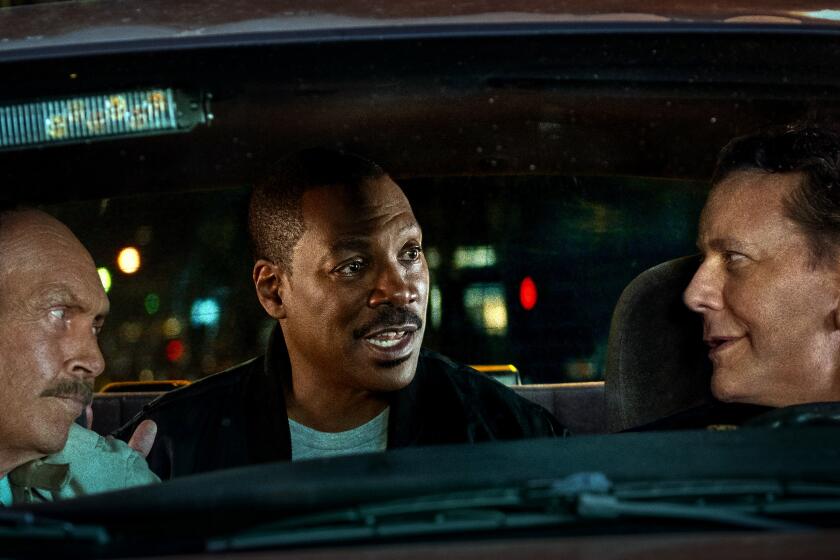Mona Washbourne; Noted English Character Actress
Mona Washbourne, the self-described “silly and rather charming” character actress best known for her stage and film representations of bosomy old biddies, has died at the age of 84.
Robert Enders, the producer-director who directed her in “Stevie,” in which she played poet Stevie Smith’s loving maiden aunt, said Monday that he had just learned that she died in a London nursing home on Nov. 15.
One of the last of the “Dear Old Things” who once abounded in English stage productions, Miss Washbourne typically garnered second, third or fourth billing but often as not came to be the character audiences remembered most fondly and best.
The Daily Telegraph of London, in writing of her death, remembered her as a performer who “came to symbolize in post-war British films and plays all that is decent and decorous in middle- or lower-class aunts and mothers.”
Although cast often in lower socioeconomic roles, she brought to them “domestic security and concern,” the Telegraph said.
Enders said of her Monday that “of all the actors I have known she left a lasting impression.”
Not all of that impression was on stage or in front of a camera. Enders remembered the time she came to New York to accept awards from the New York Critics and the National Board of Review for her work in “Stevie,” opposite Glenda Jackson, and that “she cashed in a first-class ticket so she could afford to bring a companion.”
Or the mink coat she refused to take off during interviews because “I worked hard enough to get it.”
Or the call Enders made about a year ago to the nursing home where she died only to find that she couldn’t come to the phone because, an attendant said, “I believe she’s having her gin now.”
Over the years Miss Washbourne worked with such giants of the theater as John Gielgud, Ralph Richardson, Albert Finney and director George Cukor.
She clucked her way through dozens of roles, always seemingly unaware of how funny she actually was.
In “Stevie,” for instance, she exits into the kitchen to see how a roast of lamb is progressing, saying to no one in particular, “I must go and prod the joint.”
In a 1978 interview with The Times, a writer called her a “truly dear old thing, like her characters, but a bit cleverer than her scripts allow her to be.”
‘Nymphomaniac With Bad Feet’
In “Home,” opposite Gielgud and Richardson, she played a woman she described as “a nymphomaniac with bad feet.” She was Tom Courtenay’s mother in “Billy Liar” and Rex Harrison’s housekeeper in “My Fair Lady.”
She played four roles in one film, “O Lucky Man” in 1973, and spouted Shakespeare in Disney’s “The London Affair,” made originally for television.
Born in Birmingham, she trained as a pianist at the School of Music there and came to support herself by accompanying silent pictures. Later she worked with small orchestras, playing what she called “cheeky songs.”
She joined a repertory company and made her stage debut in 1924. For the rest of her career she moved back and forth between theater and film.
A widow since 1979, she said in one interview that she had a lifelong wish to just once abandon the flustered, puzzled roles with which she had long been identified.
“I do wish I could play myself. I should like someone to write a play for me without superimposing a wig or accent on me. I could turn on a bit of charm . . . indulge in a few histrionics.”
More to Read
The biggest entertainment stories
Get our big stories about Hollywood, film, television, music, arts, culture and more right in your inbox as soon as they publish.
You may occasionally receive promotional content from the Los Angeles Times.






